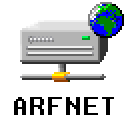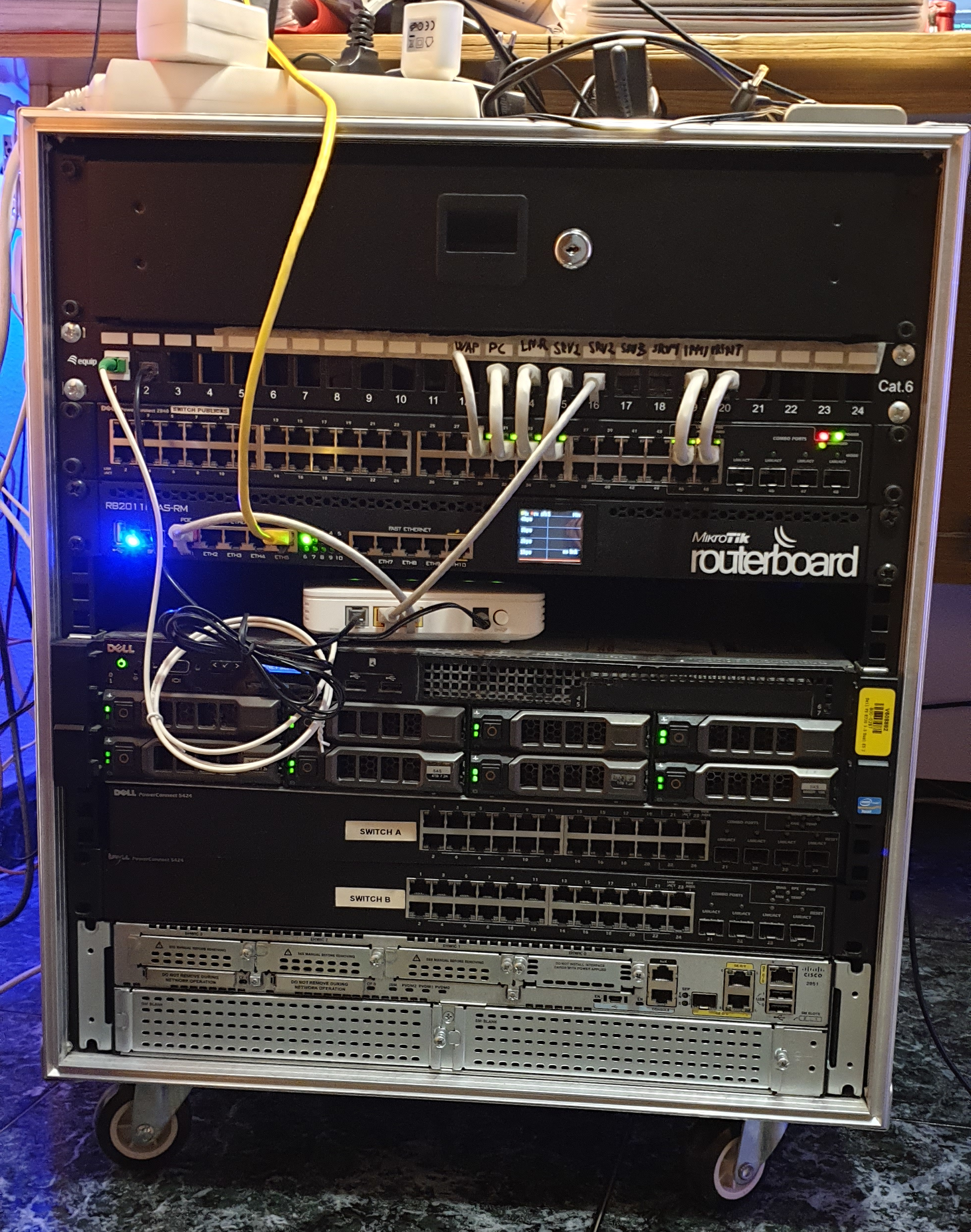 ARFNET
ARFNET
 ARFNET
ARFNET
ARFNET is a non-profit organization (a homelab really) devoted to several causes such as:
The ARFNET infrastructure consists of a network of hosts providing services like this website itself. Some of the services are for my own use, some others are public, for friends or everyone to use them, for example, /FTPServer is the general directory for sharing random stuff. But ARFNET didn't start like it is today, in the begining this was just me opening random ports. Now is (mostly) well organised and administrated.
A little bit of history now. A long time ago, several years back, I downloaded Apache HTTP Server in my shitty Pentium PC (the first host), and opened port 80 in my router. That is the origin. But I wanted more, I got a FreeDNS domain, the former arf20.mooo.com, and made a HTTPS certificate. Also installed Bitvise SSH server for remote management, with public key authentication, and allowed my NIC to wake the PC with Wake-on-LAN, to have it always available. But this wasn't a very good way of hosting a website, is not 24/7. I had a little Raspberry Pi 2B (raspi), which used to serve PPTP 24/7. But a raspi is not beefy enough to run nginx and to have a big drive. So, the waiting has paid off, and in summer 2021 I got my first real thicc and beautiful enterprise server. A DELL PowerEdge R720, which I inmediately bricked. You are not warned of the special update process that iDRAC needs, so I just tried updating to the last version, which went wrong. So wrong that iDRAC cound't be reflashed again. The only thing that I could do is change the motherboard, but that is even more expensive than another server. Another server? I still got eBay 1 month return warranty, so I applied it. Told the seller "iDRAC broke itself lol", somehow they accepted. I got my 300€ back, and bought another R720, with better CPU! So I popped the boot drive, for which I choosed Ubuntu Server, and HDD from the old server, and it was almost plug-and-play. ARFNET back in business! From that point on, I have been migrating more services to the server, and adding new ones, like NTP and DNS. Now, my workstation is so linked to the server with SMB mounts that it is useless without it :concern:. I'll be more careful.
Update 2022-3: Got a rack, mounted server in the rack, also got a Mikrotik RB2011UiaS-RM, but turns out it sucks (can't do NAT fast enough), rewired the network with a nice patch panel, got donated a few DELL switches and Cisco router, and finally kicked Vodafone, in favor of Avanzafibra, local ISP. Pretty nice people, they offer static IPs, 1000/1000 FTTH, separate ONT, and SIP credentials. Then I won an auction for 10x 3TB HGST drives, so now I've got a pretty nice 18TB RAID5 vault. The raspi died, sad. And then I eventually opened my mind and discovered just how shitty ubuntu is, so I installed proxmox and made debian VMs, from which ARFNET is running now. Also got 64GB of 2Rx4 RAM for more VMs, like an OPNSense to replace the Mikrotik, now I can finally make use of a full gigabit backbone, you'll notice a fantastic increase of speed.
And what will the future hold? Well, the future is not written, but I got a few ideas. Like a 10gig upgrade, but not the whole network, that would be just too expensive. Just a 10GBASE-SR link, between the server and desktop, to make it even more linked together, with SATA speeds network shares. Both with their respectible 1000BASE-T links to the router. I could also get a rackmounted KVM console, one of the coolest things one can have in a rack. Maybe with a KVM switch for future servers? I should get a proper 2U UPS too, this one doesn't last enough.
